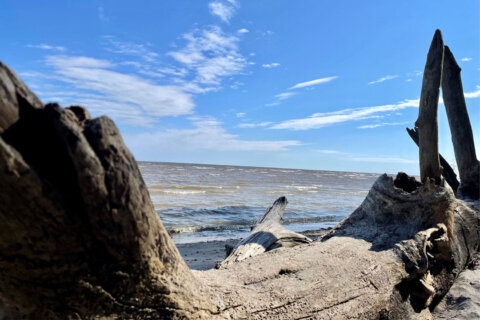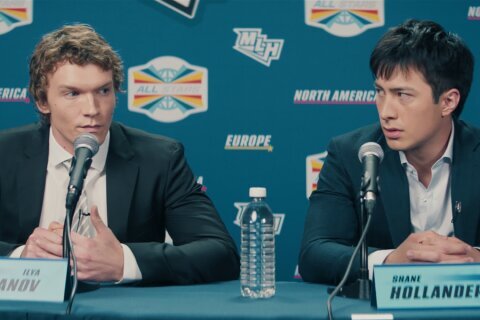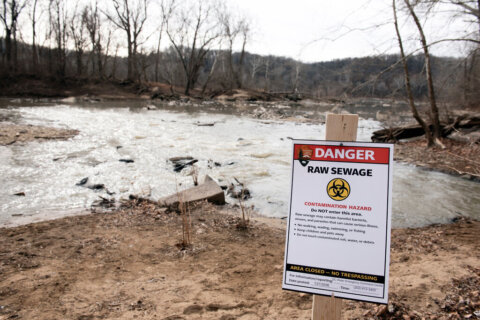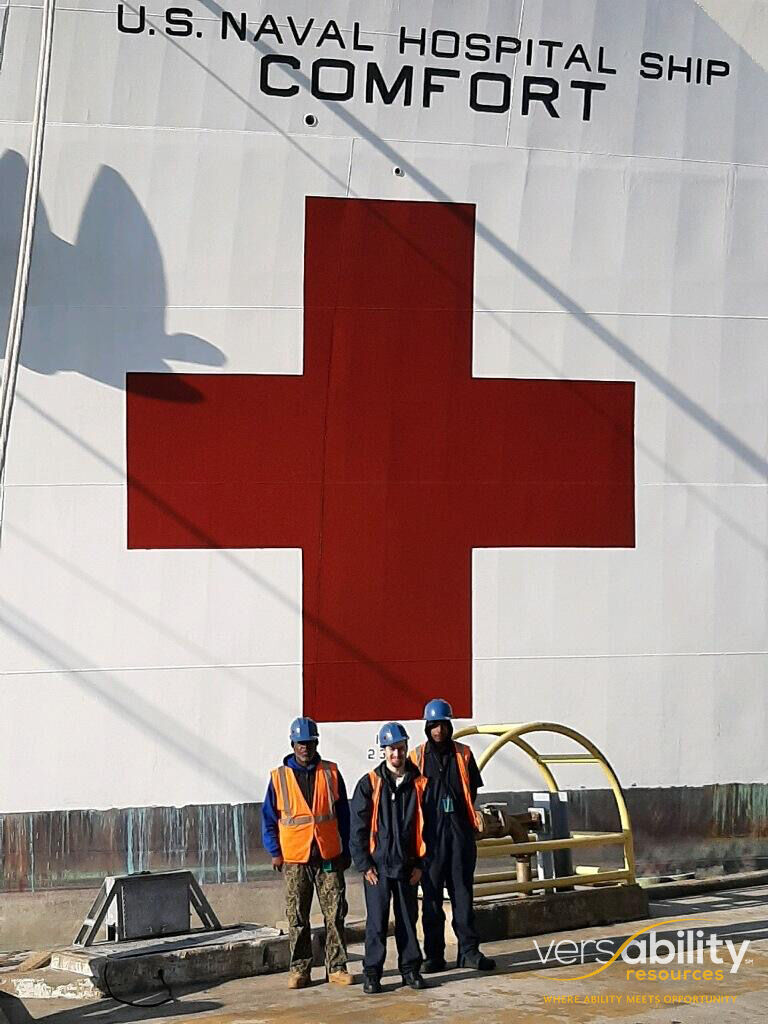
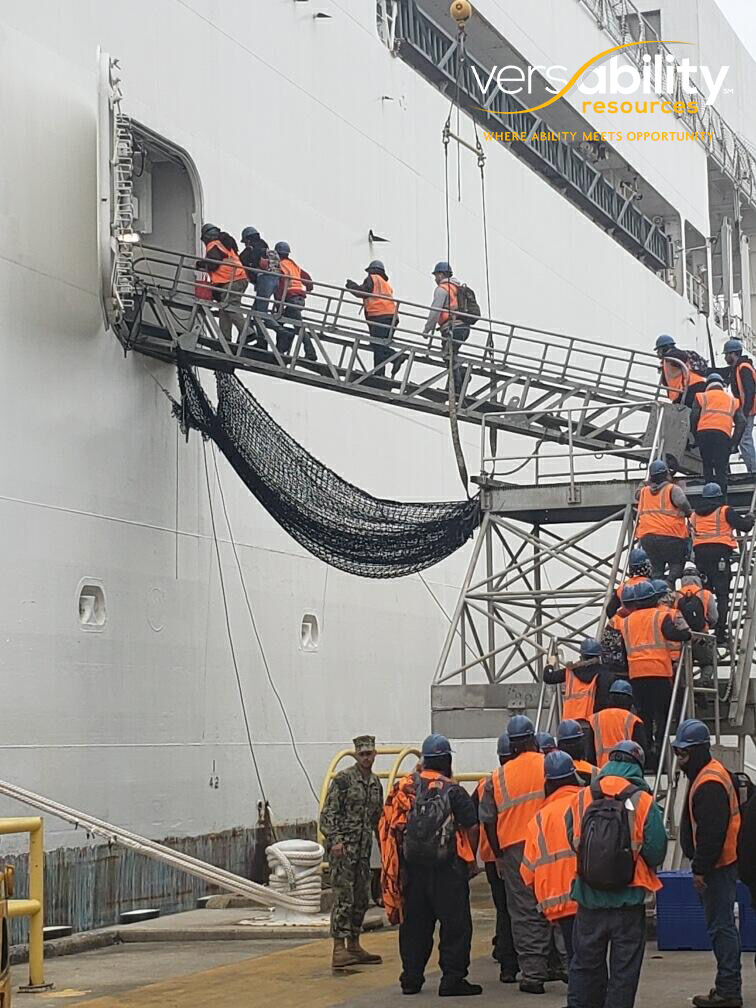
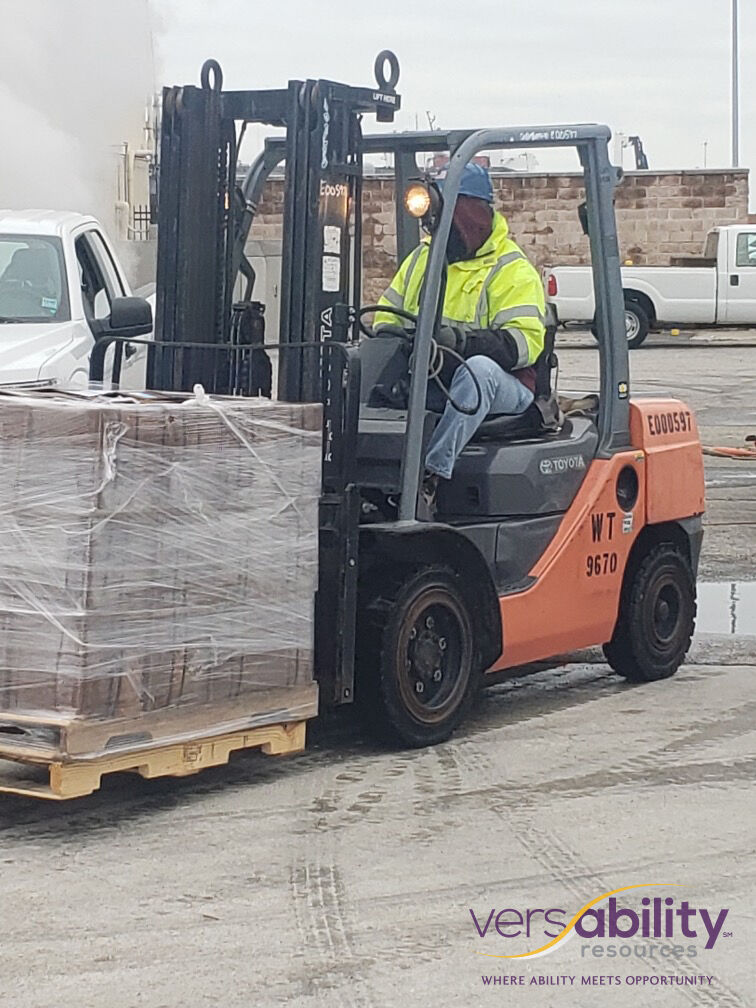
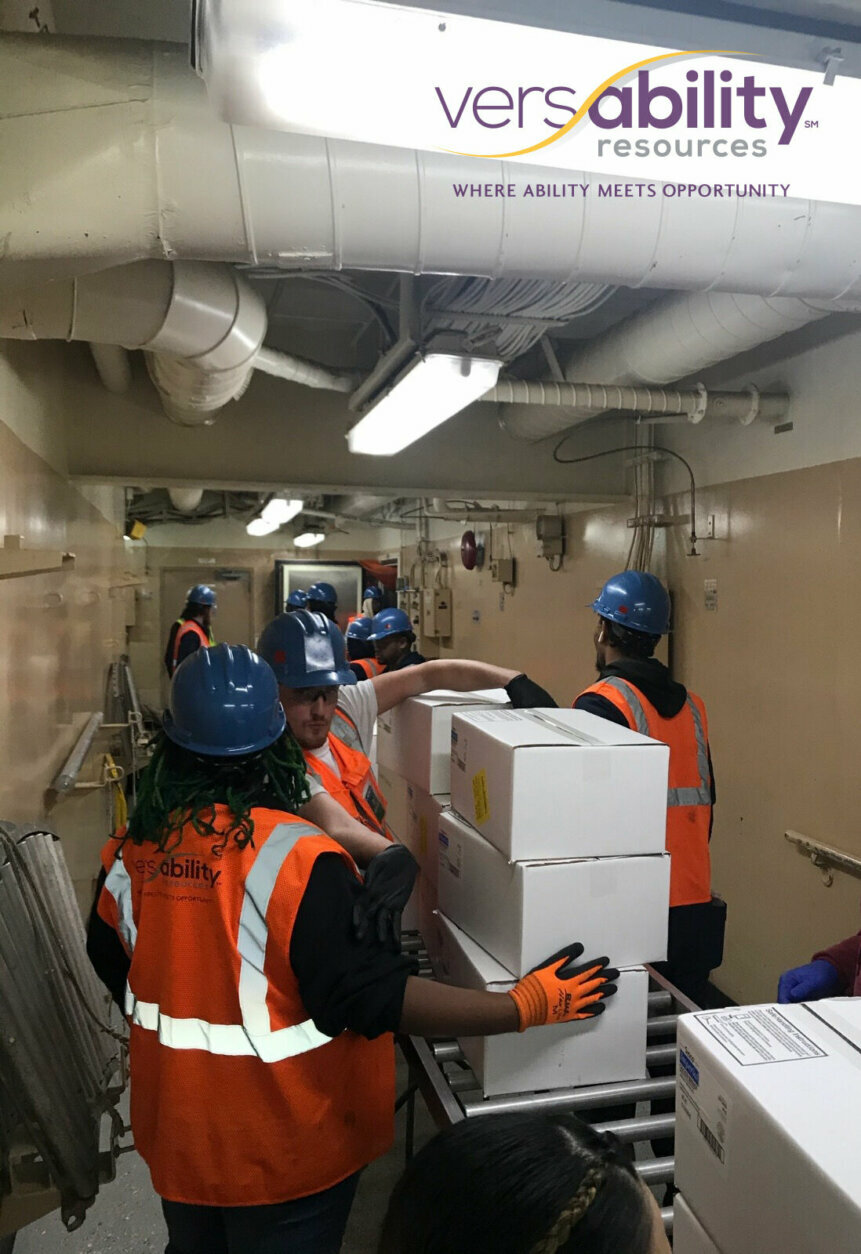
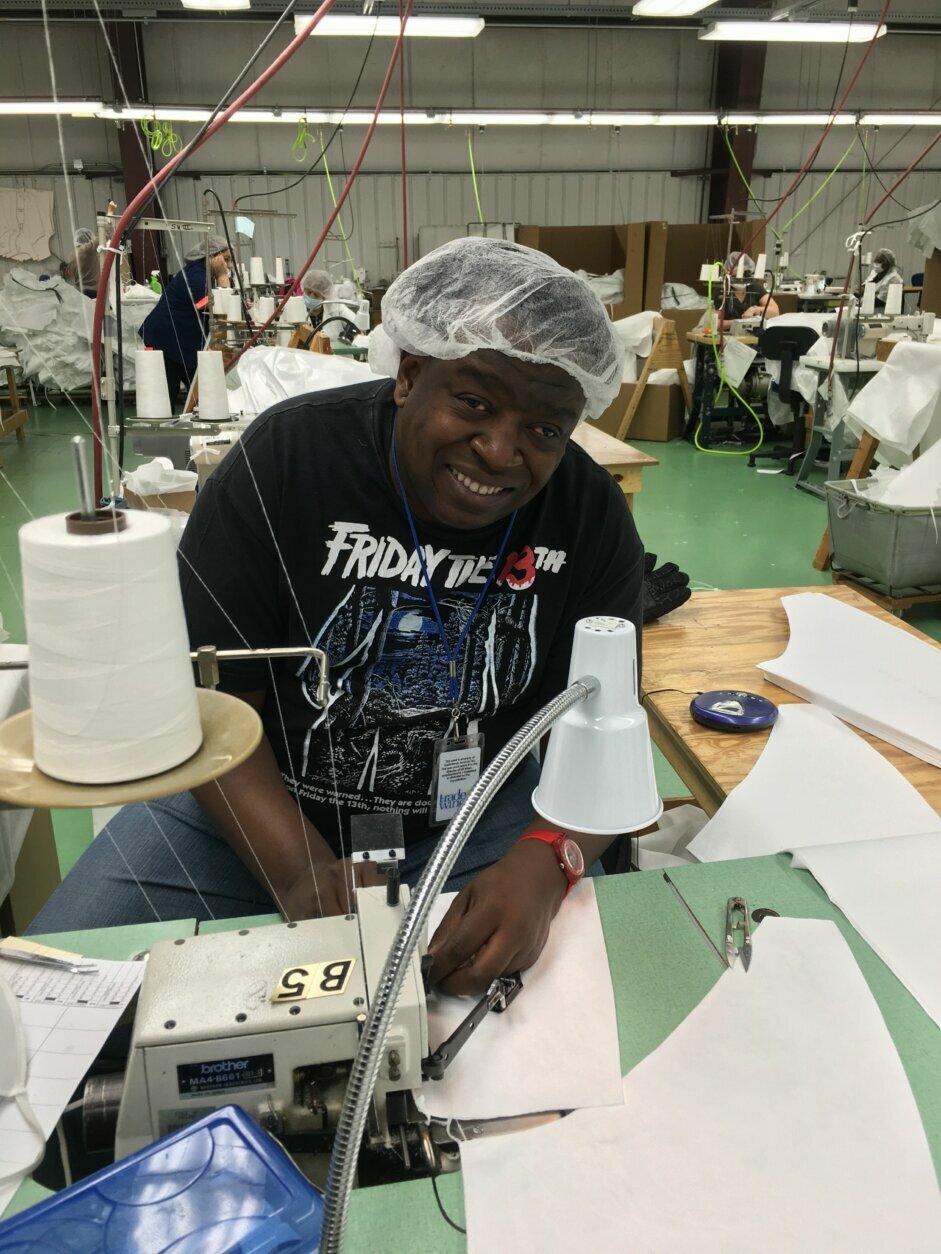
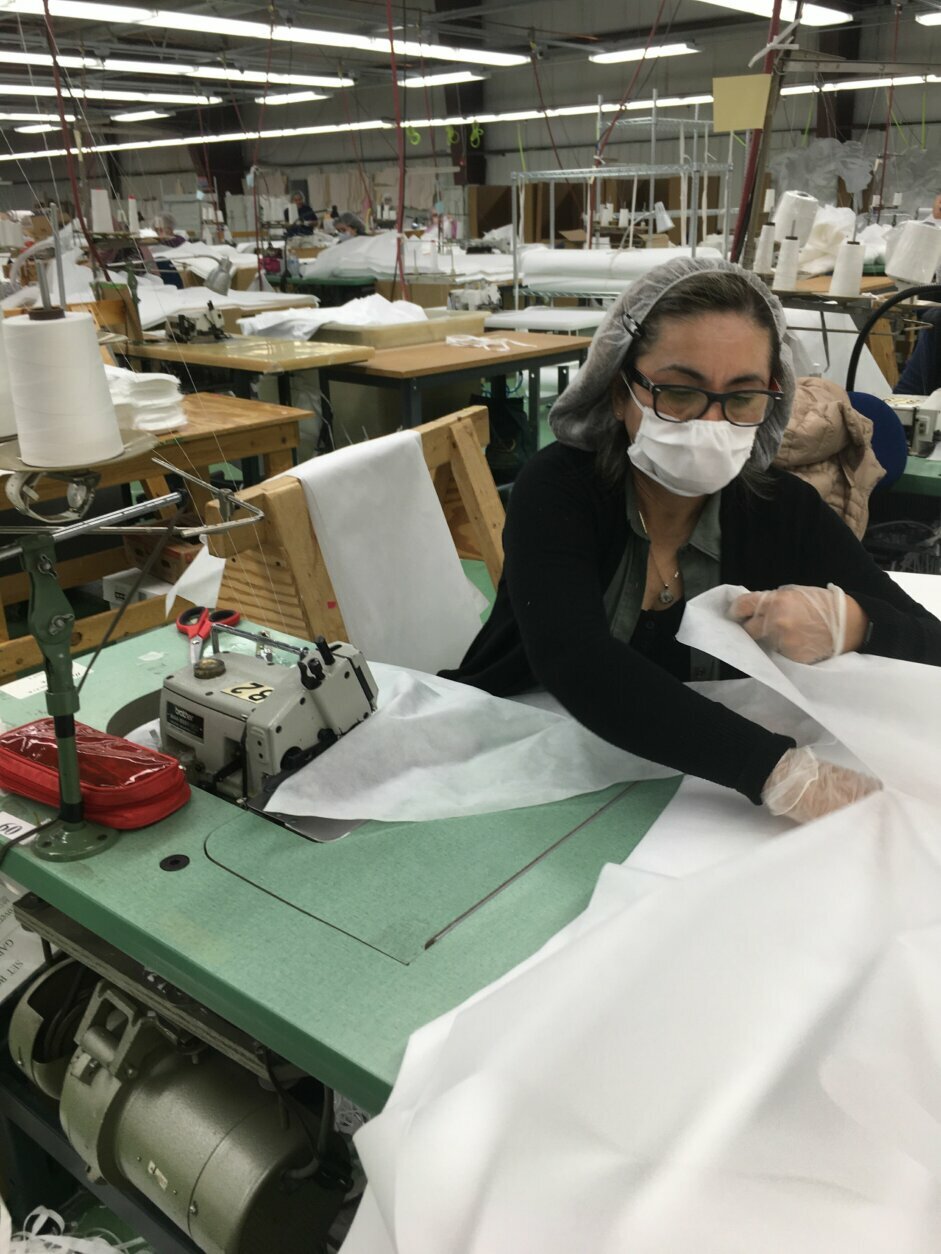
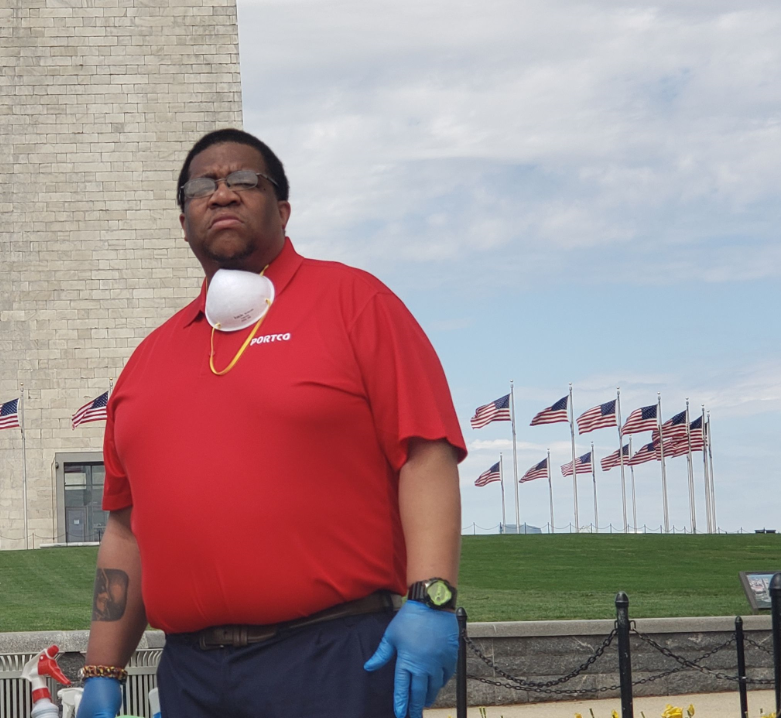
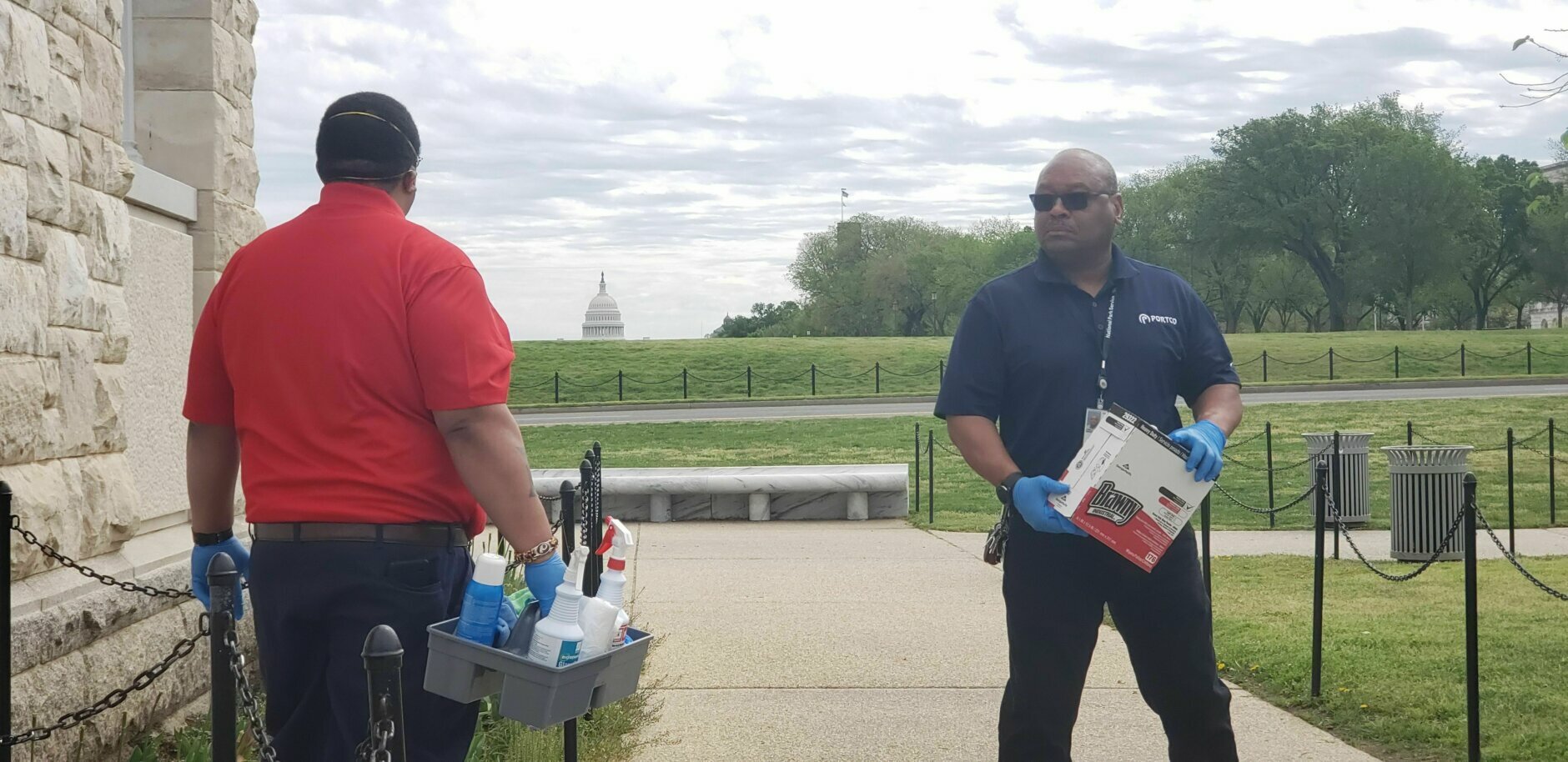
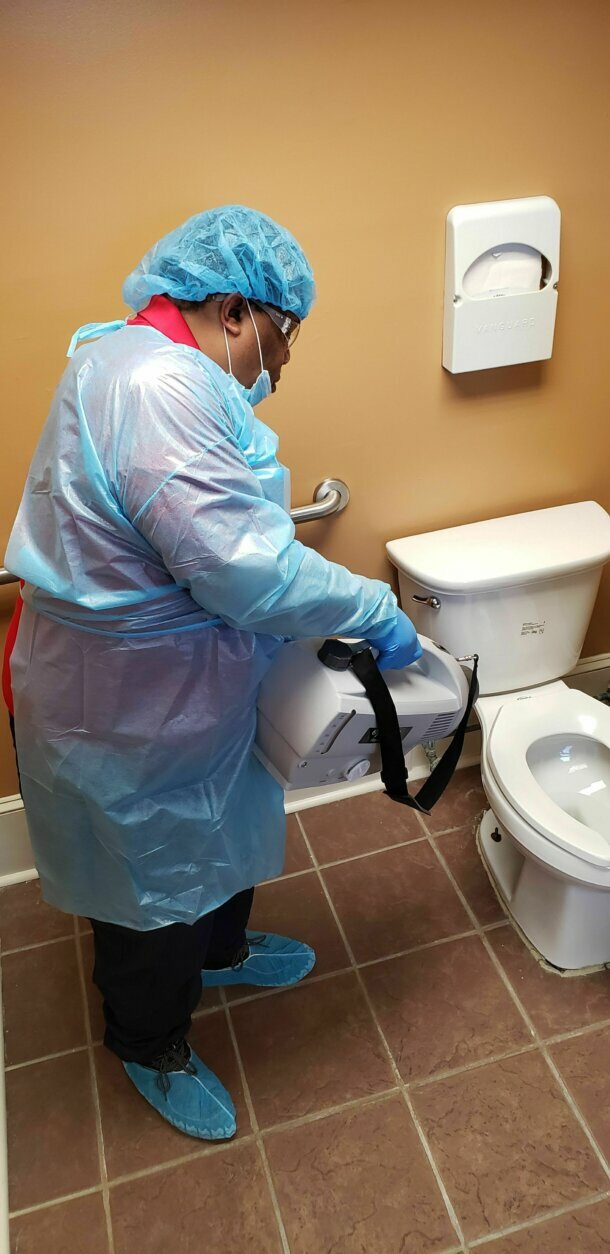

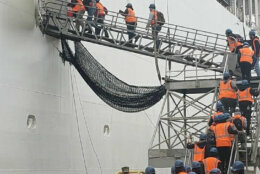
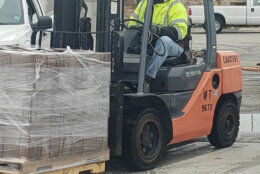
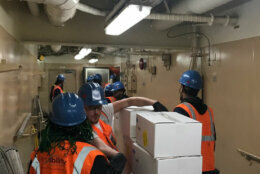
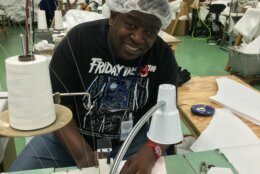
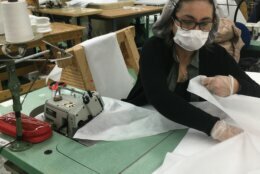
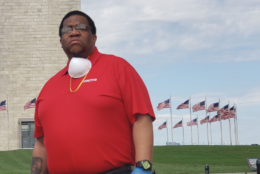
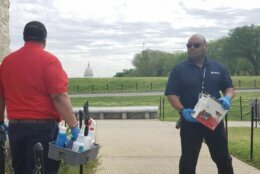
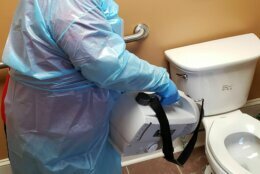
From loading pallets of food onto hospital ships to sewing masks and hospital gowns, work being done by people with disabilities is helping the nation’s COVID-19 response and the economy in general.
“Overall, in the D.C., Virginia, Maryland area, we have 43 member organizations and thousands of people working to protect the community and to keep things going while COVID-19 goes through our lives here,” said Vince Loose, president and CEO of SourceAmerica.
“The National Park Service is actually one of our more recent contracts,” Loose said of workers doing ground maintenance and janitorial services on the National Mall, Lincoln Memorial and Washington Monument.
SourceAmerica is based in Vienna, Virginia, but works nationwide linking people of differing abilities with a variety of jobs.
Loose uses the phrase “differing abilities” to describe people who go about their work a little different than others might. “And they also bring some expertise that we might not have,” he said.
“For example, a person who has a hearing impairment has very good visual capabilities, typically, and they tend to be good at doing detail kind of work … People with autism, for example, are very good on attention to detail and doing analysis,” Loose said.
People with disabilities tend to be underemployed; 70% of this population remained unemployed before the pandemic, according to SourceAmerica. But Loose said the situation had been improving when a strong economy and low unemployment rate had organizations looking for additional resources.
“With the pandemic and people being laid off, our fear is, ‘What’s going to happen as companies rehire some of their staff?’ Individuals with disabilities are the ones that are typically going to be left behind — the last to be hired,” Loose said.
Loose wants companies to embrace and broaden definitions for diversity and inclusion.
“Because someone presents themselves differently does not mean that they’re unable to do the job,” he said. “You need to look at the skill sets, the capabilities and the expertise to match what your job position needs are, and hire the best candidate for the job and not just the person who looks the best.”


